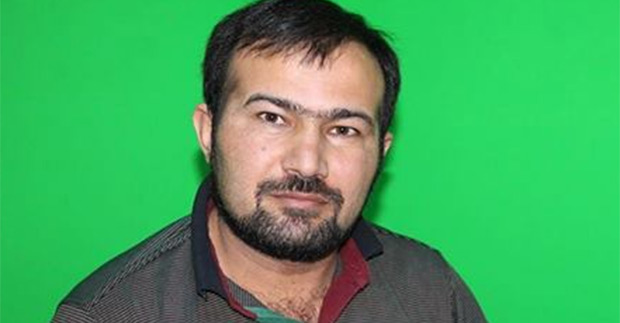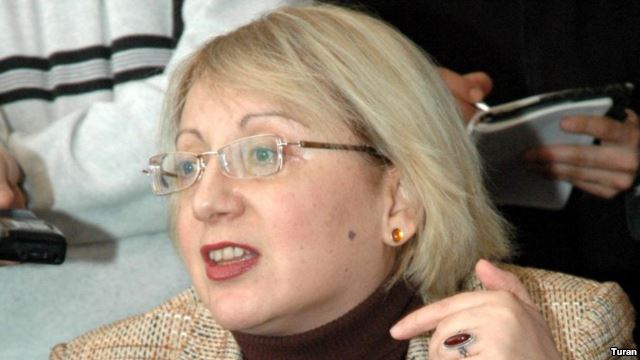16 Aug 2016 | Azerbaijan, Azerbaijan News, Europe and Central Asia, Mapping Media Freedom, mobile, News and features

Azadliq journalist Seymur Hezi was arrested in August 2014. He was subsequently convicted of aggravated hooliganism and sentenced to five years in prison.
Azerbaijan has never had a strong record on press freedom. Since independence, the country’s journalists have been mistreated, while independent and opposition newspapers faced constant libel charges and other harassment from local law enforcement or criminal elements.
Journalists and outlets that support government policies are left alone to fill their pages with praise, while those who take a more critical approach are punished. Official court documents detail how journalists have been sent to prison on trumped-up charges of hooliganism, extortion, trafficking, and instigating mass protests and violence.
In practice, however, targeted journalists reported on official corruption, criticised extravagant government spending or documented illegal evictions. While the country’s leaders and key decision makers pay lip service to media freedom, the government continues to hunt down journalists, activists and human rights defenders.
Periodic waves of arrests have created a sense of fear that has suffocated the country’s journalists. Independent media — like Index award-winning Azadliq — have been pushed into bankruptcy through the withholding of funds and spurious libel litigation. Even media organisations based outside the country — like meydan.tv — have been subject to harassment and punitive investigations. Azerbaijan’s small but remaining mass of independent voices is shrinking.
The timeline, beginning in 2003, includes journalists and bloggers who have been arrested and sentenced on bogus charges.
TimelineJS Embed
30 Jul 2014 | Azerbaijan, Azerbaijan News, News and features

Human rights defender Leyla Yunus was detained today in Baku.
It does not take a lot of time and effort to see that when it comes to Azerbaijan, views on the country’s freedom of expression record split in two. One–belonging to the president and his cronies–and their limited vision of reality combined with their persistent disregard of truth. And the other–the disregarded citizens–whose life is like an ongoing challenge full of obstacles–arrests, intimidation, murder, detention, beatings and blackmail to name a few. The levels of this marathon get harder to win and even then, there is a price to pay, sooner or later.
Stellar record vs stark reality
President Ilham Aliyev of Azerbaijan says, “All fundamental freedoms are guaranteed in Azerbaijan. There are free media and free internet”. International advocates of free speech and their Azerbaijani supporters claim otherwise. Azerbaijan ranks 160th on the World Press Freedom Index; 183rd on the Freedom House Press Freedom Index; and “partly free” on Freedom on the Net report. The list only goes on.
Currently there are at least ten journalists in detention or prison serving long and heavy sentences. There are five bloggers, 8 youth activists and civil society representatives similarly in jail on trumped up charges. According to Amnesty International in 2013, there were at least 19 prisoners of conscience behind bars in Azerbaijan. Just today, human rights defender Leyla Yunus was detained in Baku.
And if the end result of a certain type of work/affiliation/statement/ or action isn’t necessarily time spent in jail, people are often threatened, intimidated, and even blackmailed- the list of “punishments” is creative and has no limits.
One of the country’s prominent investigative journalists, Khadija Ismayil had her share of a punishment for digging out the truth. In March of 2012, Ismayil received a package where not only was she sent a letter full of belittlement and blasphemy but also a video tape of intimate nature of her personal life.
More recently the head of a local NGO from Ganja, Hasan Huseynli was sentenced to six years in jail for allegedly stabbing a man on the street.
Only days following sentencing of Huseynli, two more young men and brothers Faraj and Siraj Kerimli were detained (Faraj was in fact kidnapped) and currently are held in pretrial detention for yet another trumped up charge–drugs possession and promotion of psychedelics via social networks.
There is free media and free speech only if its pro-government media and speech. Most of the working printed papers are either government sponsored, supported, or have cut a deal of some kind.
The internet is the remaining platform for free speech and even online there is surveillance and control. Some independent online outlets have been subject to attacks while users of social media tools are shown their correspondence on Facebook when detained for questioning.
And so the government continues to play the game of cat and mouse while disguising its dismal record of free speech and human rights under the pretext of being a young democracy, in conflict with a neighboring country, and thus occupied by far more pressing issues than addressing biased reports of international organizations on poor record of human rights and free speech.
Index Reports: Locking up free expression: Azerbaijan silences critical voices (Oct 2013) | Running Scared: Azerbaijan’s silenced voices (Mar 2012)
This article was published on July 30, 2014 at indexoncensorship.org


